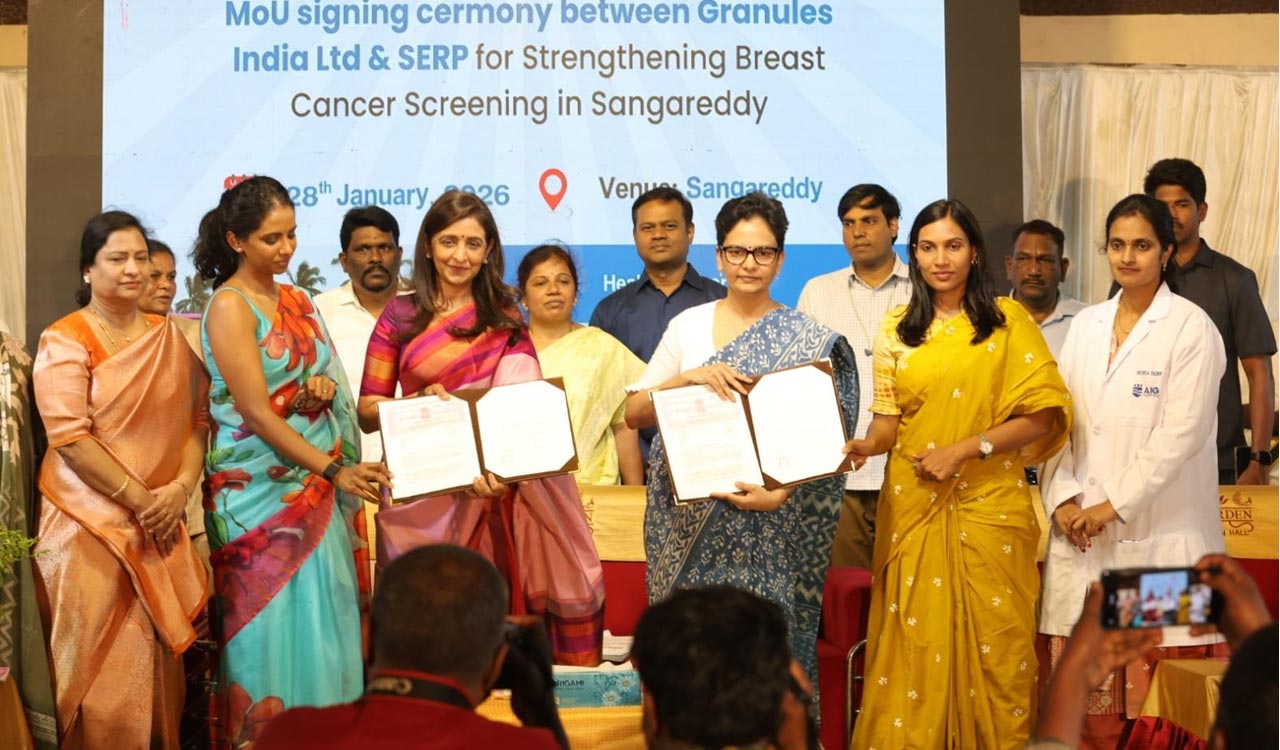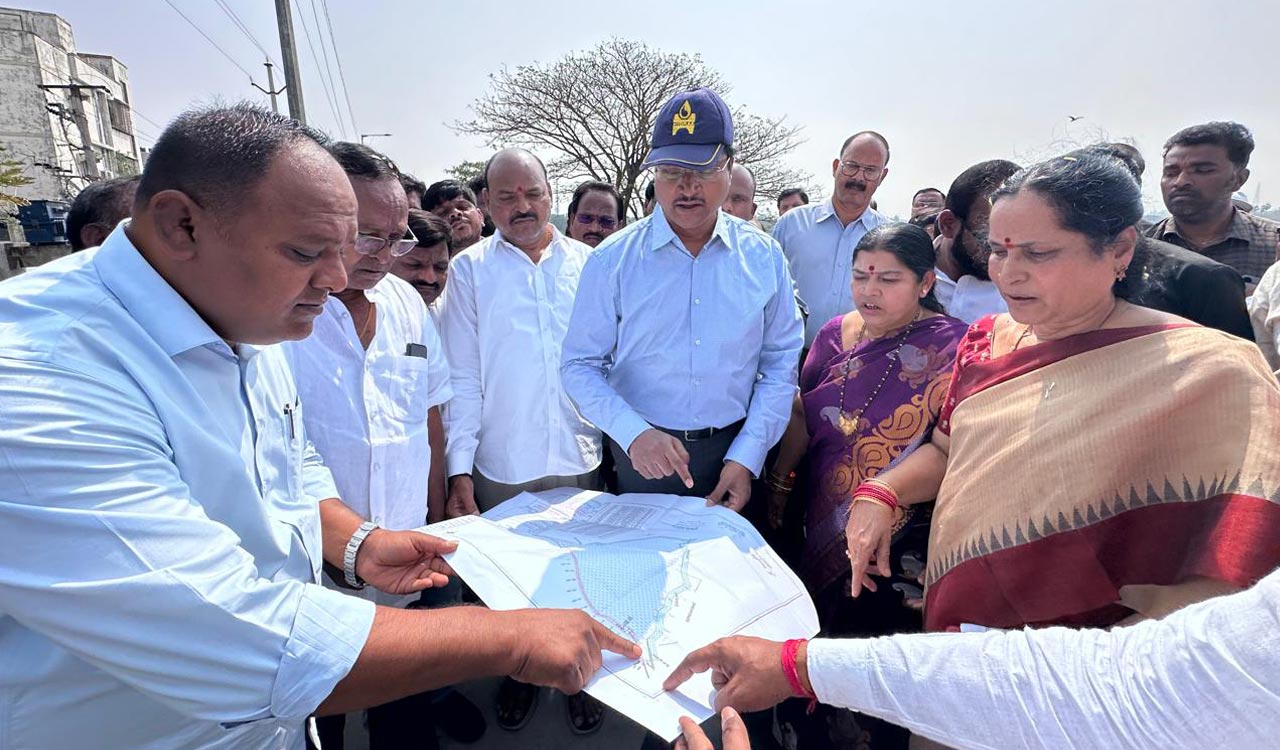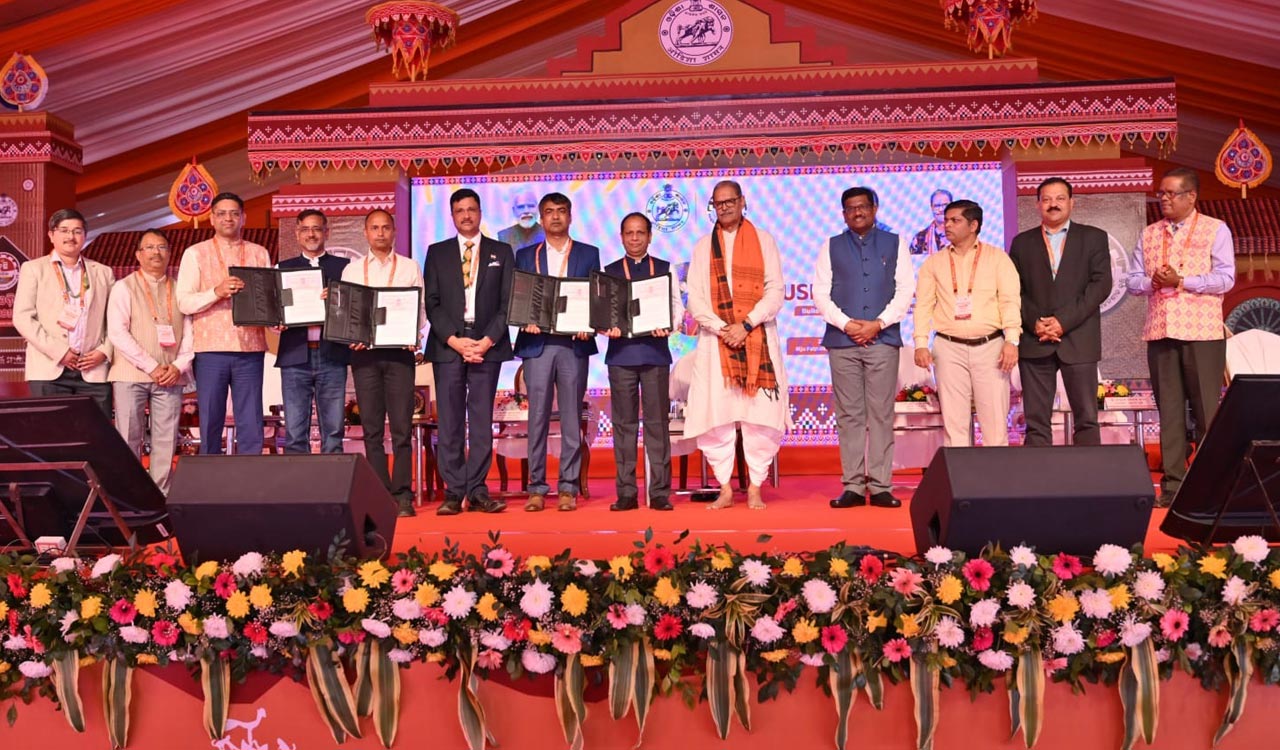IIT-H professor’s proposed Metals CO2 battery likely to come handy for Mars Mission
Sangareddy: An Indian Institute of Technology-Hyderabad (IIT-H) researcher’s proposed work on Metals CO2 battery is likely to play a key role in Indian Mars Mission-2024. Dr Chandra Shekhar Sharma, Associate Professor, Department of Chemical Engineering, has been awarded the prestigious Swarnajayanti Fellowship 2019-2020 for his proposed work on Metals CO2 battery. Dr Sharma will receive […]

Sangareddy: An Indian Institute of Technology-Hyderabad (IIT-H) researcher’s proposed work on Metals CO2 battery is likely to play a key role in Indian Mars Mission-2024.
Dr Chandra Shekhar Sharma, Associate Professor, Department of Chemical Engineering, has been awarded the prestigious Swarnajayanti Fellowship 2019-2020 for his proposed work on Metals CO2 battery. Dr Sharma will receive due support from DST (Department of Science and Technology) and SERB (Science and Engineering Research Board) to further develop this concept which can play a pivotal role in India’s 2024 Mars Mission and fixing the CO2 emissions that cause global warming. The faculty member is also founder of Creative & Advanced Research Based On Nanomaterials (CARBON) Laboratory.
Congratulating Dr Chandra Shekhar Sharma on this notable recognition, Prof BS Murty, Director IIT-H said: “It is a proud moment for IITH. It is one of the most prestigious fellowships of the country and I am delighted the IIT-H has entered into the top league with this achievement of Dr Sharma. On behalf of the institute, I congratulate him for this achievement and wish him all the best in all his future endeavours. I am sure there are more such able faculty at the institute who can bring such laurels in near future.”
This work chosen for this prestigious fellowship has two major aspects. First, an appropriate energy storage system especially suitable for the extreme environment which has always been a challenge for all space agencies including for the Next Mars mission planned for 2024. Since Mars atmosphere primarily consists of CO2, the broad objective of this concept is to scientifically explore and develop a working prototype of Metal (M)-CO2 battery technology to explore the feasibility of this technology in the Mars mission particularly for the surface landers and rovers by using the CO2 gas (95.32%) abundantly available in its atmosphere. Development of Metal-CO2 batteries will provide high specific energy density with the reduction in mass and volume which will help the reduction of payload mass and launch cost in planetary missions.
A real battery prototype will be developed as an outcome of this fellowship and organisations ISRO (Indian Space Research Organisation) and DRDO (Defense Research Development Organisation) will be brought on board in the early phase of the project for timely inputs for indigenous battery development for the Indian space mission.
The second important aspect of this work is to develop Metal-CO2 battery technology also as a promising clean strategy for restraining the climate effects of CO2 emissions on earth as we all know that it is one of the main reasons for global warming. For traditional CO2 fixation methods, large energy is required leading to more CO2 emissions. Metal-CO2 batteries have a great potential to offer significantly higher energy density than the currently used Li-ion batteries and provide a striking option to fix CO2 emissions & environmental protection also.
At the beginning of this year, Dr Sharma has proven the concept by using candle soot carbon as a cathode and tested the coin cell as assembled in a simulated Mars atmosphere. In this feasibility study, they observed that the cell performs significantly better in the Martian atmosphere as compared to pure CO2 atmosphere. That’s quite promising and encouraging. Based on these very initial results, he also filed an Indian patent in May this year. This is a technical breakthrough which shows for the very first time the feasibility of such a concept in Mars atmosphere and is just published in an International Journal, Materials Letters, as a featured Letter.
Talking about the motivation behind this proposed work, Dr Sharma who is also the Chairperson of Indian National Young Academy of Sciences (INYAS) said, “There are challenges for the success of Indian space mission to develop indigenous energy storage devices. Basic fundamental understanding of new materials and their chemistry for energy storage therefore becomes of paramount importance. An investment in basic fundamental research today will lead to new technology for the future energy security of the country and this research proposal is a small step towards that. The outcome of this project will not only utilize the CO2 atmosphere on Mars to develop more efficient energy storage systems for planetary missions but also facilitate in mitigating the global challenge of climate change ”.
Now you can get handpicked stories from Telangana Today on Telegram everyday. Click the link to subscribe.
Click to follow Telangana Today Facebook page and Twitter .
Related News
-
Pakistan’s T20 World Cup boycott ruled out, team to leave for Colombo
2 hours ago -
Manpreet Singh dropped from probables ahead of FIH Pro League season
2 hours ago -
Tata Steel Masters: Gukesh beats Erdogmus, Erigaisi loses to Keymer
2 hours ago -
India beat England by 7 wickets in Mixed Disability T20I opener
3 hours ago -
Aryna Sabalenka storms into fourth straight Australian Open final
3 hours ago -
Harris and Mandhana lead RCB into WPL 2026 final
3 hours ago -
No decision yet on shifting Nizam’s jewels to Hyderabad: Centre
3 hours ago -
Telangana Governor praises North East Connect sports initiative
3 hours ago




